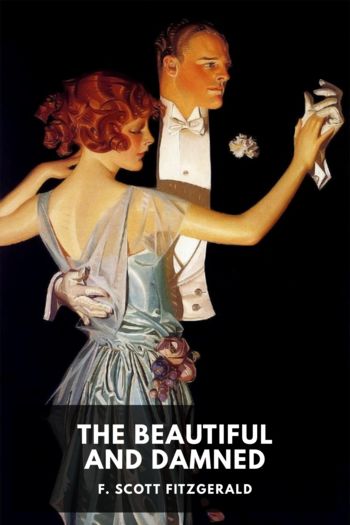Twelve Years a Slave by Solomon Northup (books to read to get smarter .txt) 📕

- Author: Solomon Northup
Book online «Twelve Years a Slave by Solomon Northup (books to read to get smarter .txt) 📕». Author Solomon Northup
She was the slave of Elisha Berry, a rich man, living in the neighborhood of Washington. She was born, I think she said, on his plantation. Years before, he had fallen into dissipated habits, and quarreled with his wife. In fact, soon after the birth of Randall, they separated. Leaving his wife and daughter in the house they had always occupied, he erected a new one near by, on the estate. Into this house he brought Eliza; and, on condition of her living with him, she and her children were to be emancipated. She resided with him there nine years, with servants to attend upon her, and provided with every comfort and luxury of life. Emily was his child! Finally, her young mistress, who had always remained with her mother at the homestead, married a Mr. Jacob Brooks. At length, for some cause (as I gathered from her relation), beyond Berry’s control, a division of his property was made. She and her children fell to the share of Mr. Brooks. During the nine years she had lived with Berry, in consequence of the position she was compelled to occupy, she and Emily had become the object of Mrs. Berry and her daughter’s hatred and dislike. Berry himself she represented as a man of naturally a kind heart, who always promised her that she should have her freedom, and who, she had no doubt, would grant it to her then, if it were only in his power. As soon as they thus came into the possession and control of the daughter, it became very manifest they would not live long together. The sight of Eliza seemed to be odious to Mrs. Brooks; neither could she bear to look upon the child, half-sister, and beautiful as she was!
The day she was led into the pen, Brooks had brought her from the estate into the city, under pretence that the time had come when her free papers were to be executed, in fulfillment of her master’s promise. Elated at the prospect of immediate liberty, she decked herself and little Emmy in their best apparel, and accompanied him with a joyful heart. On their arrival in the city, instead of being baptized into the family of freemen, she was delivered to the trader Burch. The paper that was executed was a bill of sale. The hope of years was blasted in a moment. From the height of most exulting happiness to the utmost depths of wretchedness, she had that day descended. No wonder that she wept, and filled the pen with wailings and expressions of heartrending woe.
Eliza is now dead. Far up the Red River, where it pours its waters sluggishly through the unhealthy low lands of Louisiana, she rests in the grave at last—the only resting place of the poor slave! How all her fears were realized—how she mourned day and night, and never would be comforted—how, as she predicted, her heart did indeed break, with the burden of maternal sorrow, will be seen as the narrative proceeds.
IVEliza’s sorrows—Preparation to embark—Driven through the streets of Washington—Hail, Columbia—The tomb of Washington—Clem Ray—The breakfast on the steamer—The happy birds—Aquia Creek—Fredericksburgh—Arrival in Richmond—Goodin and his slave pen—Robert, of Cincinnati—David and his wife—Mary and Lethe—Clem’s return—His subsequent escape to Canada—The brig Orleans—James H. Burch.
At intervals during the first night of Eliza’s incarceration in the pen, she complained bitterly of Jacob Brooks, her young mistress’ husband. She declared that had she been aware of the deception he intended to practice upon her, he never would have brought her there alive. They had chosen the opportunity of getting her away when Master Berry was absent from the plantation. He had always been kind to her. She wished that she could see him; but she knew that even he was unable now to rescue her. Then would she commence weeping again—kissing the sleeping children—talking first to one, then to the other, as they lay in their unconscious slumbers, with their heads upon her lap. So wore the long night away; and when the morning dawned, and night had come again, still she kept mourning on, and would not be consoled.
About midnight following, the cell door opened, and Burch and Radburn entered, with lanterns in their hands. Burch, with an oath, ordered us to roll up our blankets without delay, and get ready to go on board the boat. He swore we would be left unless we hurried fast. He aroused the children from their slumbers with a rough shake, and said they were d⸺d sleepy, it appeared. Going out





Comments (0)